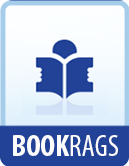I shall not linger upon the incidents of the journey. I was given carte blanche to provide myself with every comfort, and to spare no expense that I could meet. For the regalement of my inside the preparations had been lavish. Both Vienna and Germany had been called upon to furnish dainty viands suitable to my palate.
I changed cars and shirts once only on the journey. A stranger wanted me to also change a two-dollar bill, but I haughtily declined.
The scenery along the entire road to Washington is diversified. You find a portion of it on one hand by looking out of the window, and upon turning the gaze upon the other side the eye is surprised and delighted by discovering some more of it.
There were a great many Knights of Pythias on the train. One of them insisted upon my giving him the grip I had with me, but he was unsuccessful.
On arriving in Washington, which city I instantly recognized from reading the history of George, I left the car so hastily that I forgot to fee Mr. Pullman’s representative.
I went immediately to the Capitol.
In a spirit of jeu d’esprit I had had made a globular representation of a “rolling stone.” It was of wood, painted a dark color, and about the size of a small cannon ball. I had attached to it a twisted pendant about three inches long to indicate moss. I had resolved to use this in place of a card, thinking people would readily recognize it as an emblem of my paper.
I had studied the arrangement of the Capitol, and walked directly to Mr. Cleveland’s private office.
I met a servant in the hall, and held up my card to him smilingly.
I saw his hair rise on his head, and he ran like a deer to the door, and, lying down, rolled down the long flight of steps into the yard.
“Ah,” said I to myself, “he is one of our delinquent subscribers.”
A little farther along I met the President’s private secretary, who had been writing a tariff letter and cleaning a duck gun for Mr. Cleveland.
When I showed him the emblem of my paper he sprang out of a high window into a hothouse filled with rare flowers.
This somewhat surprised me.
I examined myself. My hat was on straight, and there was nothing at all alarming about my appearance.
I went into the President’s private office.
He was alone. He was conversing with Tom Ochiltree. Mr. Ochiltree saw my little sphere, and with a loud scream rushed out of the room.
President Cleveland slowly turned his eyes upon me.
He also saw what I had in my hand, and said in a husky voice:
“Wait a moment, please.”
He searched his coat pocket, and presently found a piece of paper on which some words were written.
He laid this on his desk and rose to his feet, raised one hand above him, and said in deep tones:
“I die for Free Trade, my country, and—and—all that sort of thing.”




